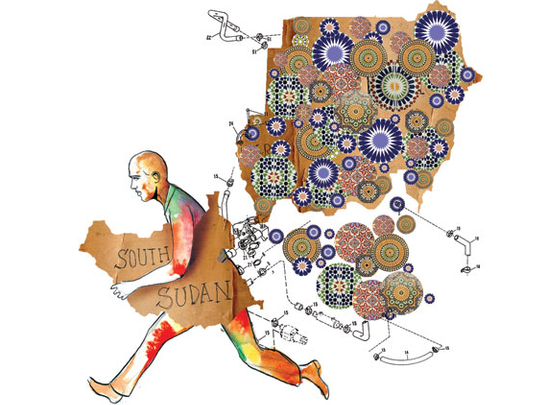
It has been said, correctly, that Sudan is a microcosm of Africa. For this reason, the entire continent will follow events in Sudan over the next few months with the greatest interest.
On January 9, 2011, the people of South Sudan will vote in a referendum to decide whether they will remain part of a united Sudan or form a new independent state. If they choose the latter option, the new state will come into being on July 9, 2011.
During the same period, even as Sudan is addressing the issue of its North-South relations, it will also have to arrive at a comprehensive agreement to end the conflict in Darfur.
During its nearly 55 years of independence, Sudan has experienced a succession of violent conflicts, in the south, the west (Darfur), and the east. It is commonly accepted that what lay at the root of these conflicts was the failure of independent Sudan — one of Africa's most racially, ethnically, religiously and culturally diverse countries — to construct a polity informed by the principle and practice of unity in diversity.
This challenge faces almost all African countries as they seek to construct stable and peaceful societies. Virtually all civil wars and other violent conflicts in post-colonial Africa have occurred because of the failure to manage properly the diversity that characterises these countries.
These conflicts have taught Africa that, in order to contain the centrifugal pressures that encourage fragmentation within our relatively new states, a conscious effort must be made to nurture and entrench national unity, which must include democratic practices. Conflict has also communicated the unequivocal message that unity cannot be secured and maintained by force alone.
Rather, it is only by respecting our diversity — ensuring that each social group enjoys a shared sense of belonging, rather than feeling marginalised and excluded — that the state's unity and peace can be guaranteed. Sudan has learned these lessons through harsh practical experience, including war.
As long ago as 1975, Jafar Al Nimeiry, Sudan's military head of state, stated with great prescience what Sudan and Africa needed to do to achieve peace and stability.
"Unity based on diversity has become the essence and the raison d'être of the political and national entity of many an emerging African country today. We take pride in that the Sudan of the Revolution has become the exemplary essence of this new hope. The Sudan is the biggest country in Africa. It lies in its heart and at its crossroads.
"Its extensive territory borders [nine] African countries. Common frontiers mean common ethnic origins, common cultures, and shared ways of life and environmental conditions. Trouble in the Sudan would, by necessity, spill over its frontiers, and vice versa. A turbulent and unstable Sudan would not therefore be a catalyst of peace and stability in Africa, and vice versa."
Poor governance
Unfortunately, failure to implement policies based on genuine respect for this perspective plunged Sudan into its second costly North-South war, fuelled the violent conflicts in western and eastern Sudan, and created the possibility of the South's secession.
Given this history, it is clear that the governments of Sudan and South Sudan, as well as the overwhelming majority of the Sudanese people, have had enough of war and passionately desire peace.
The processes in which the Sudanese parties are currently engaged — the preparations for the South Sudan referendum, negotiations on post-referendum arrangements, and the search for a negotiated settlement in Darfur — are all informed by this desire for peace.
For this reason, Africa is following Sudan's evolution with intense interest — and is eager to see this country "at the heart and crossroads of Africa" give substance to Al Nimeiry's vision.
But regardless of the outcome of the South Sudan referendum, the impending developments in Sudan will result in important changes to the structure of the Sudanese state. In this context, the Sudanese parties — North and South — have accepted the important principle of establishing ‘two viable states' if the South secedes.
As happens during periods of major and rapid change, the country will experience social tension, uncertainty and unease. Africa is keen that the Sudanese leadership cooperates effectively to manage this delicate situation, in the interest of the continent as a whole.
This requires that Sudan's various leadership collectives have sufficient strength and cohesion to bring their constituencies into the settlement, and therefore that no one, from near or afar, does anything to weaken any of these collectives.
It is in Africa's interest to see Sudan's people living together in peace and cooperating with one another for their mutual benefit — fully respecting one another's diverse but not mutually exclusive interests, whether they live in one country or two.
A Sudan that truly embodied "the exemplary essence" of respect for diversity of which Al Nimeiry spoke would serve as a catalyst for peace and stability on our continent.
It is to be hoped that the sustained and enormous international focus on Sudan has as its objective providing the necessary support to the Sudanese people to help them achieve this goal, including building two viable states, as may be necessary.










